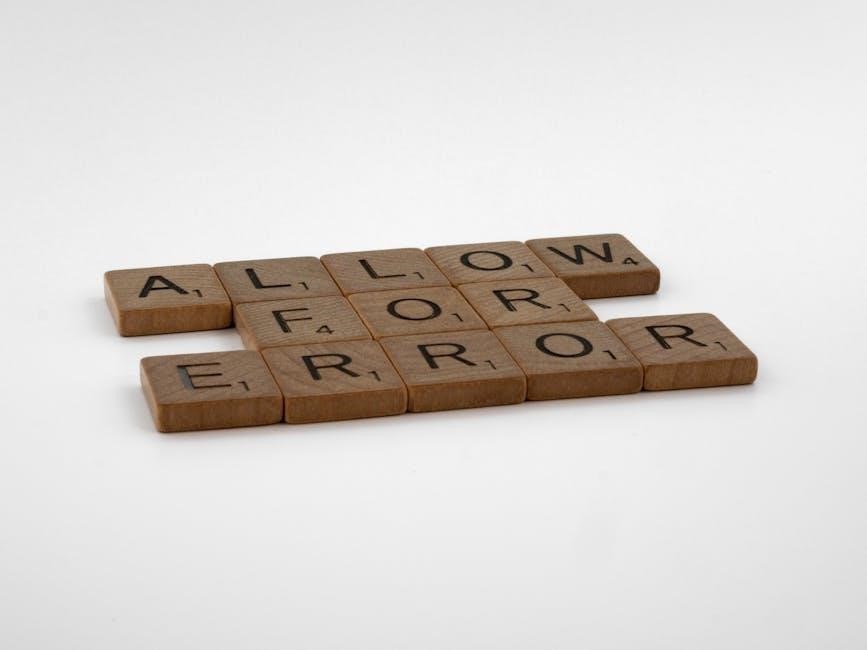Mushoku Tensei: Jobless Reincarnation is a thought-provoking isekai story exploring themes of redemption, personal growth, and second chances through its intricate world-building and complex characters.
1.1 Overview of the Series
Mushoku Tensei: Jobless Reincarnation follows a jobless man reincarnated into a fantasy world, where he resolves to live a life free of regrets. The series, written by Rifujin na Magonote and illustrated by Shirotaka, blends isekai elements with deep character development, emotional storytelling, and redemption themes. It explores complex societal dynamics and personal growth, gaining acclaim for its immersive world-building and thought-provoking narrative, making it a standout in the genre.
1.2 Themes and Genre
Mushoku Tensei: Jobless Reincarnation delves into themes of redemption, personal growth, and second chances, set within a fantasy isekai framework. The series explores complex societal dynamics, emotional depth, and character evolution, blending slice-of-life elements with epic storytelling. Its genre combines fantasy, adventure, and drama, offering a fresh take on the isekai trope by focusing on realistic character interactions and psychological insights, distinguishing it from other works in the genre.
1.3 Popularity and Reception
Mushoku Tensei: Jobless Reincarnation has garnered significant popularity and acclaim, with an average rating of 4.30 out of 5.Fans praise its intricate character development, emotional depth, and unique blend of slice-of-life elements with fantasy. The series has resonated with audiences for its realistic portrayal of personal growth and relationships, despite some controversy surrounding its themes. Its engaging narrative and well-crafted world-building have solidified its place as a standout title in the isekai genre.
Character Development and Analysis
Rudeus Greyrat’s transformation from a flawed individual to a mature hero is central to the series. His relationships with Sylphie, Roxy, and others drive his growth and the narrative.
2.1 Rudeus Greyrat: The Protagonist’s Journey
Rudeus Greyrat’s journey is a compelling exploration of personal growth and redemption. From his past life’s failures to his reincarnation, Rudeus navigates a path of self-improvement, balancing his flaws with newfound wisdom. His relationships with Sylphie, Roxy, and others shape his identity, while his internal struggles and emotional depth make him a relatable and dynamic protagonist. His story underscores themes of second chances and the pursuit of a meaningful life.
2.2 Supporting Characters: Growth and Interactions
The supporting characters in Mushoku Tensei play pivotal roles in shaping Rudeus’s journey. Sylphie, Roxy, and others undergo significant development, revealing their unique personalities and struggles. Their interactions with Rudeus foster emotional depth and drive the narrative forward. Each character’s growth contributes to the story’s richness, showcasing themes of family, friendship, and societal dynamics. Their evolving relationships highlight the series’ focus on realistic human connections and personal transformation.
2.3 Character Motivations and Psychological Depth
The characters in Mushoku Tensei are driven by complex motivations, with Rudeus’s past regrets and desire for redemption shaping his actions. His internal conflicts and growth reveal a deeply human struggle, while supporting characters like Sylphie and Roxy add emotional layers. Their psychological depth enhances the narrative, exploring themes of guilt, ambition, and the pursuit of happiness, making the story emotionally resonant and thought-provoking.

The Magic System in Mushoku Tensei
Mushoku Tensei’s magic system revolves around mana manipulation, enabling spellcasting and supernatural effects, with unique aspects that differentiate it from other fantasy worlds, adding depth to the narrative.
3.1 Understanding Mana and Spellcasting
In Mushoku Tensei, mana is the lifeblood of magic, enabling spellcasting through precise control and manipulation. Users channel mana to produce supernatural effects, with techniques varying from elemental manipulations to advanced magical constructs. The system emphasizes mastery of mana flow, requiring discipline and skill. Spellcasting methods differ among characters, reflecting their unique abilities and growth. This intricate magic system adds depth to the narrative, shaping character arcs and world interactions.
3.2 The Role of Magic in the Storyline
Magic in Mushoku Tensei serves as both a narrative driver and a character development tool. It shapes Rudeus’ journey, influencing his relationships and conflicts. The magical elements enhance the story’s emotional depth, with spellcasting often symbolizing personal growth and overcoming challenges. Magic also facilitates world-building, creating a rich, immersive environment that underscores the fantasy setting and its societal dynamics, making it integral to the plot’s progression and thematic exploration.
3.3 Unique Aspects of the Magic System
Mushoku Tensei’s magic system stands out for its depth and originality. It combines mana manipulation with unique abilities like Battle Aura, offering strategic combat possibilities. The system’s complexity allows for creative problem-solving, while its limitations ensure balanced progression. This magical framework not only enhances the narrative but also enriches character development, making it a cornerstone of the series’ appeal and thematic exploration, while avoiding redundancy in its design and execution.

Themes and Narrative Structure
Mushoku Tensei masterfully explores themes of redemption, personal growth, and societal dynamics through a layered narrative, avoiding redundancy while delivering emotional depth and complexity in its storytelling approach.
4.1 Redemption and Personal Growth
Rudeus Greyrat’s journey in Mushoku Tensei epitomizes redemption and personal growth. From a life of regret and flawed decisions, he embraces a second chance, evolving into a compassionate and responsible individual. The narrative meticulously explores his transformation, addressing past mistakes without glorifying them, and showcasing his dedication to family and self-improvement. This arc avoids redundancy by delving into the complexity of his character, making his growth feel authentic and deeply satisfying to witness.

4.2 Social and Cultural Dynamics
Mushoku Tensei delves into rich social and cultural dynamics, exploring societal norms, class distinctions, and interpersonal relationships within its fantasy world. The series reflects real-world issues through its characters’ interactions, highlighting themes of acceptance, prejudice, and community. Cultural practices and traditions are vividly portrayed, adding depth to the narrative. These elements create a immersive experience, allowing viewers to connect with the characters’ struggles and growth within a layered societal context.
4.3 The Concept of Reincarnation and Second Chances
Mushoku Tensei explores the profound concept of reincarnation, offering its protagonist a fresh start to rectify past regrets. The series delves into the idea of second chances, showcasing personal growth and redemption; Through Rudeus’ journey, the narrative highlights the potential for change and self-improvement, emphasizing that past mistakes can serve as catalysts for a better future. This theme resonates deeply, illustrating the universal human desire for redemption and a second opportunity to thrive.

Comparing Light Novel and Anime Adaptation
The anime adaptation stays true to the light novel, enhancing character arcs with meticulous attention to detail. Both formats captivate audiences with engaging storytelling and depth.
5.1 Differences in Storytelling and Pacing
The light novel delves deeper into internal monologues and subplots, while the anime streamlines the narrative for visual storytelling. Key scenes are condensed, maintaining the core emotional beats but omitting some secondary details to fit the episode structure. This pacing adjustment ensures the anime remains engaging without sacrificing the story’s emotional depth or character development.
5.2 Character Portrayal in Both Formats
The light novel offers deeper character introspection, while the anime focuses on visual expressions and interactions. Rudeus’s internal struggles and emotional growth are more explicit in the novel, whereas the anime relies on voice acting and animation to convey his feelings. Supporting characters like Sylphy and Roxy are fleshed out similarly, with the anime emphasizing their dynamics through screen time, while the novel provides richer backstory and psychological depth.
5.3 Audience Reception of Each Medium
The light novel and anime adaptations of Mushoku Tensei have garnered significant acclaim. Readers praise the novel for its rich storytelling and emotional depth, while anime fans highlight its visual quality and voice acting. Both mediums are lauded for their faithful portrayal of Rudeus’s journey and character growth. However, some viewers noted pacing issues in the anime, whereas the novel’s detailed narrative is universally appreciated for its immersive experience and thematic resonance.

Cultural Impact and Fan Engagement
Mushoku Tensei has left a significant cultural impact, sparking active fan discussions and inspiring community engagement through its rich narrative and memorable characters.
6.1 Fan Theories and Community Discussions
Mushoku Tensei has sparked vibrant fan theories, with discussions centering on Rudeus’s reincarnation, his complex relationships, and the mysteries of the Six-Faced World. Fans actively speculate about unresolved plot points and character arcs, fostering a thriving online community. Platforms like Reddit and Discord host debates about potential story twists and the deeper meaning behind key events. These discussions highlight the series’ ability to engage audiences intellectually and emotionally, fueling its cultural relevance.
6.2 Cultural Significance in Anime and Manga
Mushoku Tensei has left a lasting impact on anime and manga culture, praised for its emotional depth, realistic character interactions, and nuanced storytelling. As a standout isekai series, it challenges genre norms, offering a fresh perspective on redemption and personal growth; Its intricate world-building and relatable themes resonate deeply with audiences, solidifying its place as a modern classic in the anime community.
6.3 Influence on the Isekai Genre
Mushoku Tensei has significantly influenced the isekai genre by setting a new standard for storytelling depth and character development. Its mature themes, emotional resonance, and realistic character interactions have inspired other creators to explore complex narratives. The series has elevated the genre, encouraging a shift toward more nuanced and morally ambiguous storytelling, while its success has solidified its role as a benchmark for modern isekai adaptations.

Future Prospects and Upcoming Developments
Mushoku Tensei’s third season promises to expand Rudeus’s journey, exploring uncharted story arcs and deepening character dynamics, ensuring fans remain captivated by its evolving narrative.
7.1 Announcements for Season 3
Following the conclusion of Season 2 in June 2024, Mushoku Tensei’s third season was officially announced, exciting fans worldwide. A promotional video teased further adventures, hinting at Rudeus and Sylphie’s engagement and their quest to fulfill their dreams. The upcoming season is expected to delve into new story arcs, exploring deeper character development and unresolved plotlines. Additionally, the release of the light novel’s Volume 26 has heightened anticipation for the anime’s continuation.
7.2 Potential Story Arcs and Character Developments
Season 3 of Mushoku Tensei is expected to explore Rudeus and Sylphie’s married life and their journey to achieve their aspirations. Additionally, Roxy’s arrival and the birth of her child may introduce new dynamics. The story may delve into unresolved conflicts and deeper character backstories, offering fans a rich narrative experience while maintaining its emotional depth and intricate world-building.

7.3 Fan Expectations and Anticipation
Fans eagerly anticipate Season 3, hoping for deeper exploration of Rudeus and Sylphie’s relationship and Roxy’s role. The community speculates about unresolved plotlines and character arcs, expecting emotional depth and narrative richness. With the light novel’s final volume still unfolding, enthusiasts are excited to see how the anime adapts upcoming twists, maintaining its reputation for compelling storytelling and immersive world-building.
